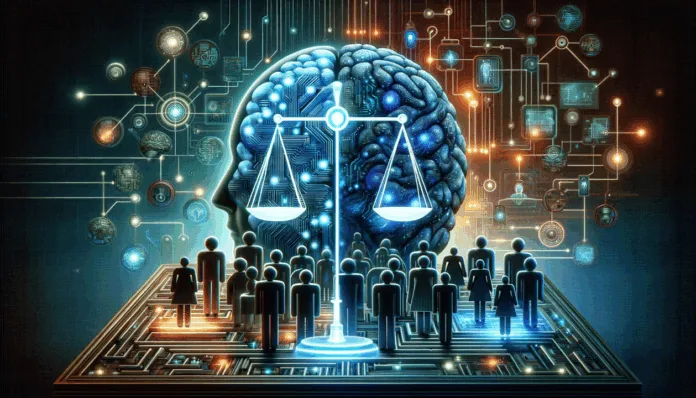
As artificial intelligence (AI) becomes deeply embedded in our daily lives, conversations surrounding the ethics of AI are gaining unprecedented importance. From healthcare to hiring processes and autonomous vehicles, AI technologies are making decisions with direct consequences for individuals and societies. Navigating this space requires a thoughtful approach that balances innovation with responsibility, ensuring that AI systems serve humanity rather than harm it.
In this article, we explore the growing challenges and responsibilities that come with integrating AI into society. We’ll examine the key ethical concerns, the frameworks being developed to address them, and the future of responsible AI development.
Why the Ethics of AI Matter
AI systems are designed to analyze vast amounts of data and make decisions faster than any human could. However, this efficiency can sometimes come at a cost. The ethics of AI matter because these systems can inadvertently inherit and even amplify biases, invade privacy, and make opaque decisions with little to no accountability.
Consider facial recognition technology. In many cases, it has shown a high rate of error, especially among certain demographic groups. When such tools are used in law enforcement or surveillance, the implications of biased AI can be severe. Hence, ensuring artificial intelligence ethics is not just a theoretical concern—it is a real-world necessity.
Key Ethical Concerns in Artificial Intelligence
Bias and Fairness:
AI systems learn from historical data, which may include inherent biases. If not addressed, these systems can perpetuate discrimination in areas like hiring, lending, and policing.Transparency and Explainability:
AI often functions as a “black box,” making decisions without clear explanations. For users and regulators to trust AI, its decision-making processes must be understandable.Privacy:
AI often depends on large datasets that include sensitive personal information. Protecting this data is crucial to maintain user trust and comply with regulations.Accountability:
When AI systems fail or cause harm, who is responsible? Developers, companies, and governments must establish clear frameworks for AI accountability.Autonomy and Human Oversight:
As AI systems become more autonomous, ensuring they operate under human oversight is vital to avoid unintended consequences.
Developing Responsible AI Frameworks
To ensure ethical AI deployment, governments, academic institutions, and private companies are developing ethical technology frameworks. These guidelines aim to integrate moral principles into every stage of AI development—from data collection to deployment and monitoring.
Some widely accepted principles include:
Transparency: Making AI processes understandable and auditable.
Justice and Fairness: Ensuring systems do not discriminate.
Beneficence: Prioritizing user well-being and safety.
Non-Maleficence: Avoiding harm through rigorous testing.
Autonomy: Empowering users to make informed decisions.
Companies like Google and Microsoft have established internal AI ethics boards to review high-impact projects. Meanwhile, countries are crafting policies that promote ethical innovation, ensuring AI evolves under responsible guidance.
Ethical Innovation: The Way Forward
The path to truly ethical innovation is not without challenges. Rapid advancements in AI often outpace regulatory and ethical standards. Moreover, the global nature of technology makes it hard to enforce consistent principles across borders.
To foster ethical growth, we must promote:
Global Collaboration: Sharing best practices and aligning international AI standards.
Public Engagement: Educating the public about AI and involving them in ethical discussions.
Inclusive Development: Involving diverse voices in the design and deployment of AI systems.
Ultimately, ethical AI development is not a one-time task but a continuous process. It requires the combined efforts of technologists, ethicists, policymakers, and society at large.
Conclusion
As we continue to push the boundaries of what AI can do, it is essential to remain grounded in the ethics of AI. Responsible AI development ensures that innovation benefits everyone—not just a privileged few. By embedding ethical considerations into the core of AI development, we can build a future where technology uplifts humanity rather than undermines it.